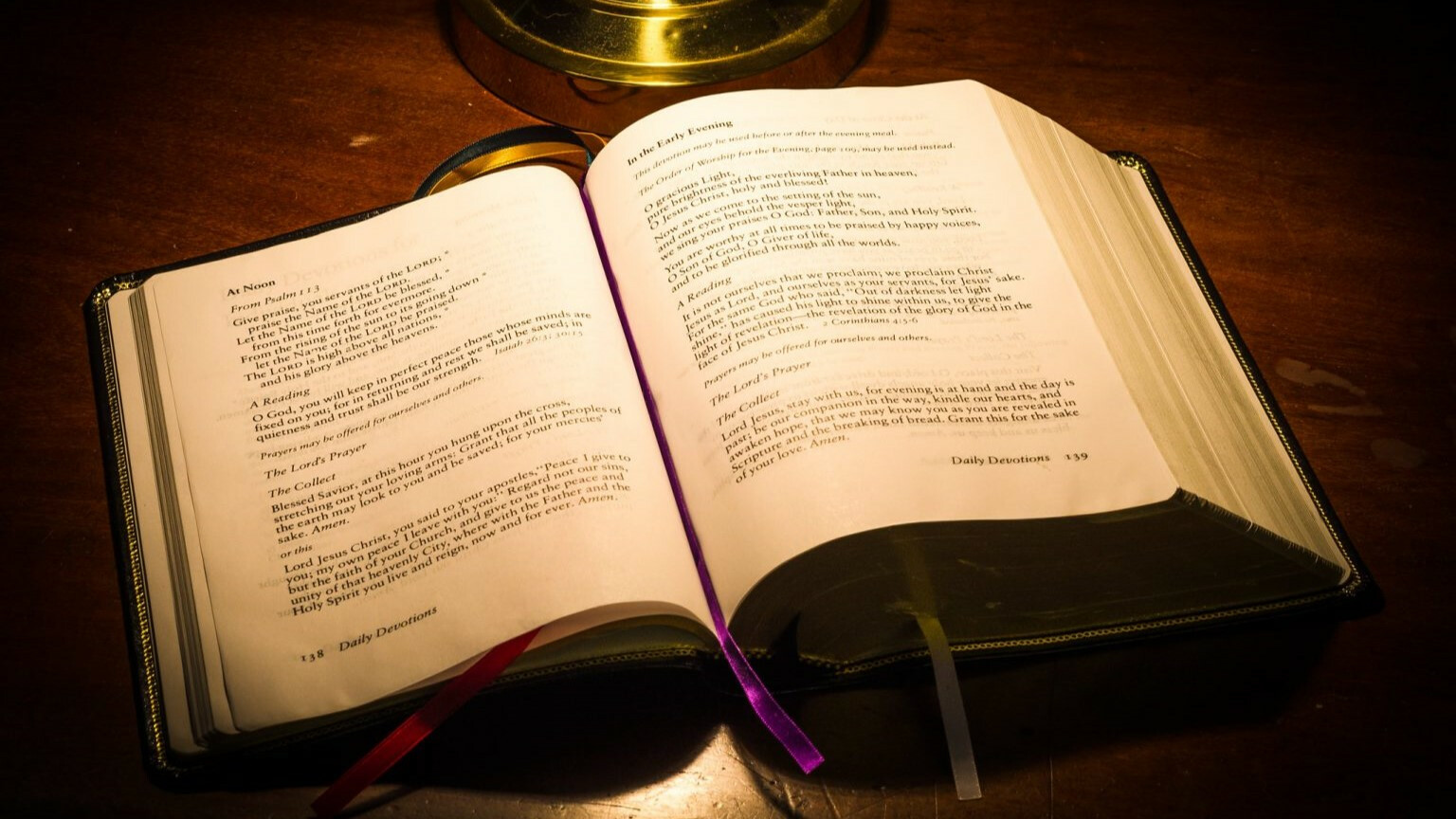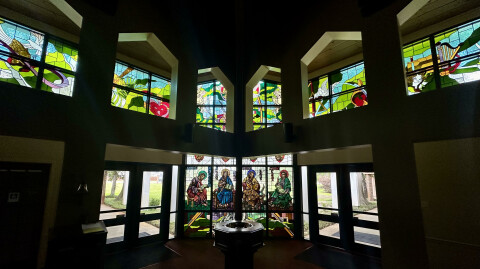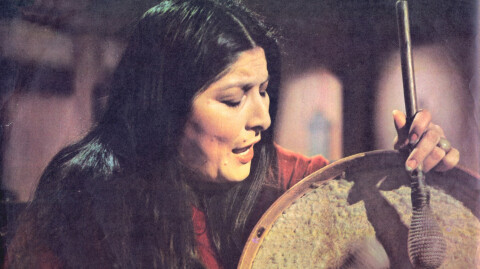TLDR: Many of the collects in the BCP are ancient statements of faith that have inspired countless Christians for many centuries. Please read below for a reflection on last Sunday’s Collect.
The Collect for this last Sunday was originally assigned to the Second Sunday of Lent in the Gregorian Sacramentary (10th C. E.) From there, it was picked up by later sacramentaries and earlier Books of Common Prayer. Our 1979 BCP moved it to its current location on the Third Sunday of Lent, when a more ancient prayer was assigned to the Second Sunday of Lent (Hatchett, Commentary on the American Prayer Book.) The Collect nicely gathers up the believers assembled together for worship, but it also nicely gathers up the theological motifs of Holy Scripture for this Sunday. Let us briefly review the Collect.
Almighty God, you know that we have no power in ourselves to help ourselves: Keep us both outwardly in our bodies and inwardly in our souls, that we may be defended from all adversities which may happen to the body, and from all evil thoughts which may assault and hurt the soul; through Jesus Christ our Lord, who lives and reigns with you and the Holy Spirit, one God, for ever and ever. Amen.
As I have said before, a Collect is usually composed of four different components: A. Ascription (it tells us something about God), B. Petition (it asks for something), C. Reason/result/aspiration (what we hope to achieve should the petition be answered, or the reason why we ask it), and D. Trinitarian Ending (To the Father, through the Son, by the power of the Holy Spirit.)
The Ascription for today’s collect says that “God knows that we have no power in ourselves to help ourselves.” This statement has a biblical warrant in Ephesians 2:8-9, “For by grace you have been saved through faith, and this is not your own doing; it is the gift of God— not the result of works, so that no one may boast.” Now, the ascription can be a bit confusing, as it affirms that we can’t “help” ourselves. Certainly there are things we can do to help our health, our finances, our relationships with others, our faith, etc. A better way to understand “help” in this context is by adding a few more words: We can’t help ourselves “in our salvation.” In other words, we can’t save ourselves. God has known this since our fall from grace. Salvation is up to God, through Christ’s sacrifice on the cross, and it is not the result of human efforts. I see in this ascription an echo of what Paul is telling us today in 1 Corinthians 1:18-25. The cross of Christ is a scandal to Greeks and Jews, but to us who are being saved, “It is the wisdom of God.”
The Petition of our collect asks God to “Keep us both outwardly in our bodies and inwardly in our souls.” To keep in this context is to guard, protect, defend, and to preserve. I love the fact that this petition refuses any idea of dualism or the distinction that many in the Scholastic movement made between the body and the soul. Sadly, some still believe that the body is the jail of the soul, evil and perverse. The petition acknowledges that God cares as much for the wellbeing of our body as for the health of our souls. We need God’s protection because there are untold dangers that threaten our bodies: illnesses, accidents, relational conflicts, addictions, economic reversals, violence, etc. We also need God’s protection and help for our souls, especially in a world that pulls many of us toward hopelessness and faithlessness.
We have dual aspirations in this collect: “That we may be defended from all adversities which may happen to the body,” and “that we may be defended from all evil thoughts which may assault and hurt the soul.” God does the defending, it is God’s “keeping” that provides the protection we need to fight off all adversities. Now, this does not mean that we will not age, experience the occasional headache, suffer relational conflicts, or be in need or want. What it means is that God will give us sufficient physical, mental, and spiritual strength to cope with and battle these adversities. I believe in praying for health and I know God answers prayers, but I also believe that health can mean three things: body, mind, and soul. When we ask for health, we are asking for physical recovery of faculties or functioning, but we are also asking for the strength to accept our human frailties without undue depression, anxiety, and fear. We are asking for peace of mind, regardless of circumstance.
The second aspiration mentions protection against “evil thoughts” that assault and hurt the soul. Evil thoughts are often directed against ourselves. The greatest enemies we face are located in the region behind our eyes. We tend to be our own worst enemies, with all our self-judgement, misguided shame, and self-directed behaviors. These thoughts deny the fact that we were created for God’s joy and God delights in us. We treat ourselves as though we are no longer the image of God (Imago Dei) of Genesis. Even those with a low anthropology (a low view of humanity) cannot deny that even the worst sin cannot extinguish God’s image in our hearts. The image remains, even if covered by layers of sin and neglect. Our self-directed evil thoughts often imply that God made a mistake when we were created. This is false and arrogant. We are beloved children of God and we were created for good.
Evil thoughts are also often directed against others (envy, malice, arrogance, pride, jealousy…) These thoughts deny the fact that we were created for love. At every Sunday liturgy we repeat Christ’s command that we “love God with all our heart, soul, and mind and our neighbor as ourselves.” This is the greatest aspiration of any Christian. We need protection against any internal inclinations of the heart that steer us away from this divine command. Sadly, we often covet what others have, we let anger and hatred predispose us against others, we are enamored by the self and believe we don’t need God, and we are arrogant and negligent when confronted with the needs of the world. We need God’s help to save our souls in the here and now of our current, daily lives. Salvation is a continuous present that starts here and now: we have been saved; we are being saved; we will continue to be saved.
The collect ends with a trinitarian ending, which reminds us of distinctive Christian theology. Prayers that end, “In Jesus Name” are beautiful and can be used for a variety of purposes, but collects are trinitarian prayers. All collects are prayers, but not all prayers are collects. Many of the collects in our BCP are ancient statements of faith that have inspired countless Christians for many centuries. When we use them, we join the communion of saints in all times and places in the worship of our God.
May our Lord continue to bless you.
Fr. Roman+





